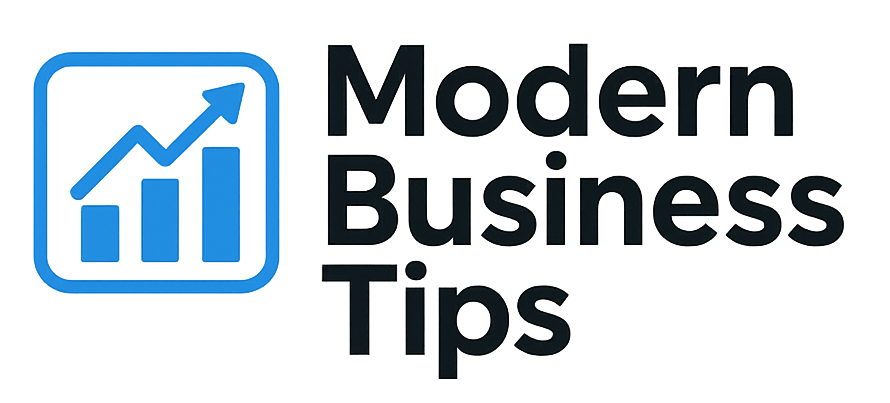Ever wondered why some entrepreneurs soar while others struggle? The answer often lies in their mindset. In today’s fast world, knowing how to think like an entrepreneur is key. This article will explore mindset changes that can boost your business.
Innovation, resilience, and being adaptable are vital. These traits help you grow. Let’s explore how these shifts can change your business journey.
By adopting these principles, I hope to inspire a change in you. This change will help your business thrive.
Key Takeaways
- Understanding the critical role of a founder mindset in business growth.
- The importance of resilience and adaptability in overcoming challenges.
- How a customer-centric approach fosters long-term relationships.
- The impact of collaboration and networking on entrepreneurial success.
- Continuous learning as a cornerstone for ongoing improvement.
Understanding the Founder Mindset: What Is It?
The founder mindset is key to entrepreneurs’ success in many fields. It combines determination, vision, and innovation. This mix is essential for effective leadership in business.
Exploring this mindset helps me see how it influences decision-making and business strategies. It’s fascinating to learn how it shapes the way entrepreneurs think and act.
Defining the Founder Mindset
The founder mindset is all about being proactive and adaptable. It’s about focusing on both immediate challenges and long-term goals. This mindset helps entrepreneurs lead their businesses well.
It keeps business owners ahead of the game. They can spot market changes and react quickly. This is what makes a founder mindset so powerful.
Importance in Entrepreneurship
Entrepreneurs with a strong founder mindset often lead successful companies. Studies show that a growth mindset boosts profits and revenue. This mindset encourages creativity and taking calculated risks.
By adopting this mindset, I’ve seen how it leads to success. It’s not just about the business; it’s about the journey and the growth.
The Role of Resilience in Business Growth
Resilience is key for entrepreneurs in a changing world. Business comes with ups and downs, testing your will and plans. A resilient mindset helps you bounce back fast and grow stronger.
This mindset encourages learning and adapting. These are essential for moving forward when things are uncertain.
Bouncing Back from Setbacks
Entrepreneurship is not always smooth. I’ve learned that resilience helps me overcome failures. Instead of seeing failures as obstacles, I use them to learn and grow.
By accepting mistakes, I keep improving. This leads to success in the future.
Building Mental Toughness
Mental toughness is more than just sticking with it. It helps entrepreneurs face pressure and stay focused on their goals. Studies show that tough leaders solve problems better and make quicker, smarter decisions.
Having a founder mentality based on mental toughness builds confidence. It prepares you to grab opportunities and tackle challenges head-on.
Embracing a Customer-Centric Approach
Adopting a customer-centric approach changes how I work with clients. Listening to feedback helps me improve my products and build trust. It’s key to understanding what customers want, which boosts my business.
The Benefits of Customer Feedback
Customer feedback is essential for better business strategies. It gives me insights to improve. This makes customers feel important and valued.
Happy customers often come back and tell others. This is great for growing my business.
Building strong relationships with customers is important. Keeping in touch helps keep them loyal. A loyal customer base makes my business more stable.
Regular talks with customers help me understand their needs better. This way, I can quickly change to meet their preferences. Entrepreneurs who focus on building relationships see their businesses grow and thrive.
Importance of Adaptability in a Changing Market
In today’s fast-paced business world, being adaptable is key to success. Entrepreneurs need to keep an eye on trends that affect their industries. This lets them make quick changes.
Successful leaders think strategically, watching market shifts to adjust their plans. This flexible mindset opens up new chances for growth, even when things are uncertain.
Recognizing Market Trends
The first step to being adaptable is to spot market trends early. By watching consumer habits and new tech, entrepreneurs get important clues. This helps them change direction smoothly.
Good leaders use research, customer opinions, and industry news to find new trends. This way, they can spot patterns before they become big issues.
Evolving Business Strategies
Adopting a startup mindset means always updating your strategies. Being flexible leads to new ideas and solving problems creatively. This is vital in today’s changing market.
Founders should talk openly with their teams. This builds a culture where everyone can share ideas. This teamwork often leads to big breakthroughs that move a company forward.
| Strategy | Traditional Approach | Adaptive Approach |
|---|---|---|
| Market Assessment | Annual Reviews | Ongoing Monitoring |
| Product Development | Fixed Roadmap | Iterative Process |
| Customer Engagement | Periodic Surveys | Continuous Feedback Loops |
| Competitive Analysis | Year-End Reports | Real-Time Insights |
Cultivating a Sense of Ownership
In today’s fast-paced world, having a sense of ownership in a team is key to success. It makes team members feel responsible for their work, good or bad. This leads to a deeper commitment to the team’s goals.
Taking Responsibility for Outcomes
When people see their work as part of the company’s success, they take it seriously. This mindset creates a team that tackles problems head-on. Leaders who lead by example show everyone the value of taking responsibility.
Empowering Team Members
Empowering teams boosts motivation and creativity. Giving them the freedom to make decisions makes them more productive. When employees feel valued, they’re happier and more productive.
| Aspect | Ownership Mentality | Team Empowerment |
|---|---|---|
| Responsibility | High | Moderate |
| Engagement Level | Increased | High |
| Innovation | Moderate | High |
| Employee Satisfaction | High | Very High |
The Power of Networking and Collaboration
Networking and collaboration are key to a thriving business world. The strength of professional relationships often predicts success in business. A strong network opens doors to new insights, resources, and chances for growth.
Building connections based on trust and shared goals is vital. It sets the stage for meaningful partnerships.
Building Strong Professional Relationships
Creating strong professional ties takes effort and purpose. I make it a point to connect with others in my field at events, seminars, and online. These connections create a space for sharing knowledge and supporting each other.
Such relationships promote an entrepreneurial spirit. They focus on growth and innovation.
Leveraging Partnerships for Growth
Strategic partnerships can greatly influence a business’s path. I’ve seen how working together with other companies can share resources and risks. This approach helps access new markets and boosts brand visibility.
Many success stories show the power of collaboration. It drives innovation and is a key tool for entrepreneurs.
Fostering a Culture of Innovation
Creating a culture of innovation is key for any organization looking to grow. It’s important to encourage creative thinking in your team. This way, you create a space where new ideas can thrive. A strong leader mentality is essential, as it motivates teams to be bold and question the norm.
Encouraging Creative Thinking
To encourage creative thinking, I create an environment that values trying new things and hearing different views. This lets team members share their ideas freely, no matter how unusual they might seem. Here are some ways to do this:
- Organizing brainstorming sessions to come up with new ideas.
- Hosting workshops on design thinking and solving problems.
- Encouraging risk-taking by celebrating both wins and learning from failures.
Companies that focus on these practices stay ahead of the game. They adapt quickly to market changes.
Implementing Change Effectively
Effective change implementation needs strategic planning and clear communication. As a founder, clearly sharing my vision helps everyone understand the reasons for change. This openness supports innovation and prepares for successful adaptation. Important steps in implementing change include:
- Providing the right tools and resources for the team.
- Setting up a feedback loop to track progress and challenges.
- Encouraging a mindset of continuous improvement and flexibility.
Companies that handle change well see better employee engagement and long-term success. This shows the value of fostering a culture of innovation.
| Aspect | Impact of Creative Thinking | Impact of Implementing Change |
|---|---|---|
| Employee Engagement | Increased motivation and participation | Higher morale as employees feel included |
| Innovation Rate | More innovative product and service offerings | Faster adaptation to market needs |
| Company Results | Outperformance in competitive markets | Improved financial performance and sustainability |
Setting and Communicating a Clear Vision
A strong foundation for any organization starts with a clear vision. I create an effective mission statement to guide our efforts. This statement shapes our culture and helps in making decisions.
Visionary leadership is key in sharing this vision. It makes sure everyone works towards our goals. When team members know our mission, they are more motivated and united in our success.
Crafting a Compelling Mission Statement
A good mission statement is the heart of my organization. It tells us who we are and what we aim for. I work hard to make a statement that reflects our values and inspires others.
This mission brings unity and purpose to our team. It encourages us to work together towards our goals.
Aligning the Team with Business Goals
Aligning teams with our goals is essential for success. I make sure everyone knows their role and what’s expected of them. This leads to better teamwork and accountability.
Open communication helps us stay focused. Through leadership, we see better performance and strategy alignment. This brings us closer to our goals.
Developing Strong Decision-Making Skills
For any entrepreneur, making good decisions is key. I’ve learned that mixing intuition with data analysis boosts my strategic thinking. This approach helps me make choices that grow and innovate my business.
Balancing Intuition and Data
As an entrepreneur, I’ve found that intuition comes from experience and insights. This founder mentality lets me trust my gut and also look at data. By checking customer feedback and market trends, I make better decisions and get better results.
Learning from Past Decisions
Every decision I make is a chance to learn. Looking back at my choices helps me understand what works and what doesn’t. This helps me improve my decision-making skills and adapt to changes in the market.
| Decision-Making Aspect | Importance | Example |
|---|---|---|
| Intuition | Utilizes personal experience | Launching a product based on gut feeling |
| Data Analysis | Informs strategies with metrics | Using sales data to identify trends |
| Learning from Decisions | Improves future choices | Adjusting marketing strategies after feedback |
Prioritizing Continuous Learning and Improvement
In the fast-paced world of entrepreneurship, continuous learning is key. It helps keep you ahead of the game. By staying up-to-date with industry trends and new tech, you can adjust your business plans quickly. This dedication to learning is a big part of achieving long-term success.
Staying Informed on Industry Trends
Industry trends are always changing, shaping the market. By spending time on research, you can spot these changes early. Knowing these trends lets you stay relevant and keep up with the fast pace of change.
Investing in Personal and Team Development
Investing in your own growth boosts your skills and your team’s. Regular training helps you and your team get better at what you do. This focus on growth leads to better performance and new ideas.
| Focus Area | Benefits | Impact on Growth |
|---|---|---|
| Continuous Learning | Enhances adaptability, encourages innovation | Direct correlation with market competitiveness |
| Industry Trends | Informs strategic decision-making | Improved responsiveness to market demands |
| Personal Development | Boosts individual performance and motivation | Stronger overall business results |
| Team Development | Fosters collaboration and creativity | Increased organizational effectiveness |
Conclusion: Nurturing a Growth-Oriented Mindset
In wrapping up this discussion, it’s clear that a growth-oriented mindset is key for successful entrepreneurship. Embracing resilience helps us bounce back from challenges. Adaptability keeps us ready for market changes. A customer-centric approach builds lasting relationships that grow our businesses.
These mindset shifts are vital for overcoming setbacks and driving growth. For those starting their entrepreneurial journey, I urge you to adopt these seven shifts. A proactive approach helps us overcome obstacles and grab opportunities.
By focusing on creative thinking, continuous improvement, and teamwork, we can tackle business challenges with confidence. This ensures our long-term success.
As you continue, keep embracing a growth-oriented mindset. It turns challenges into learning opportunities. These qualities prepare you for entrepreneurship’s ups and downs, creating a space for innovation and progress.



